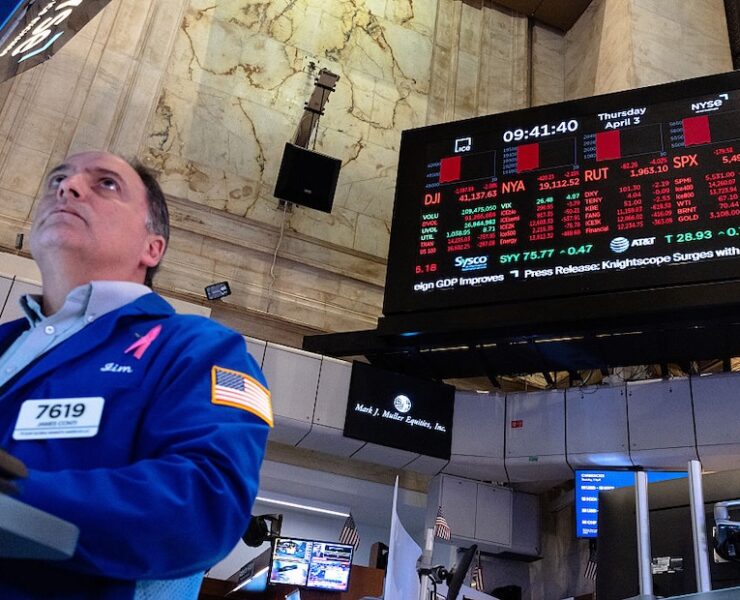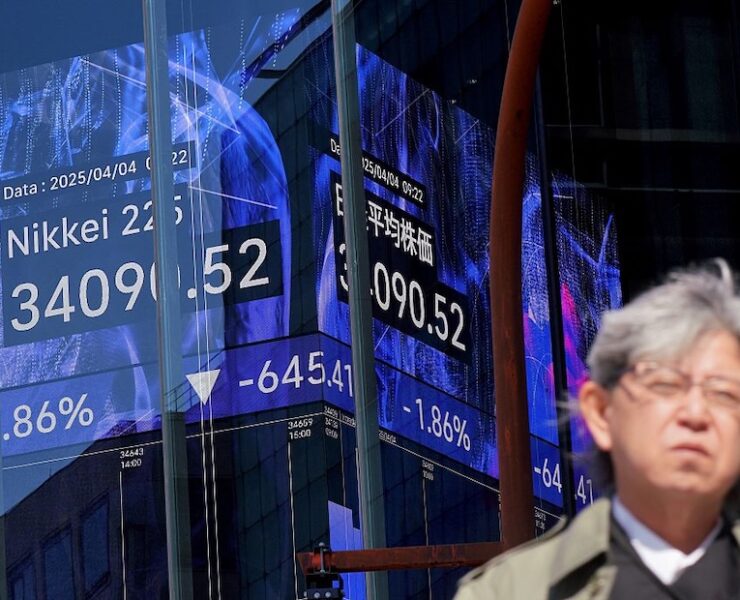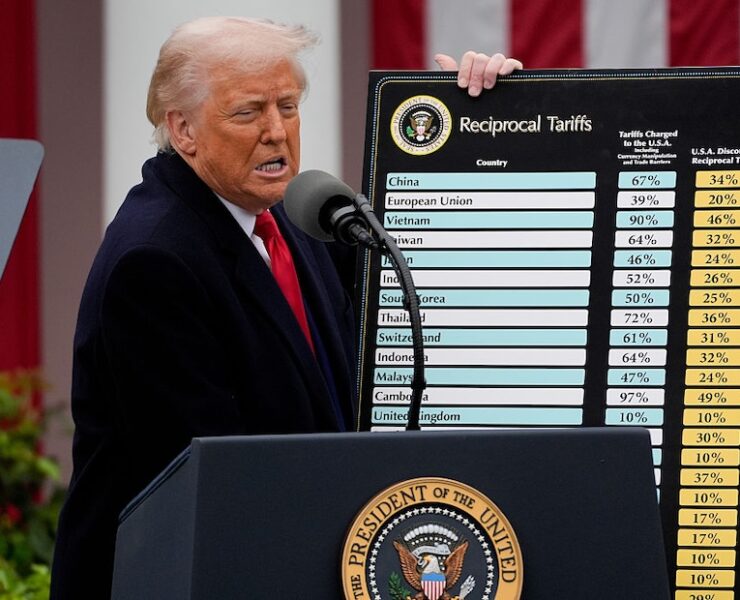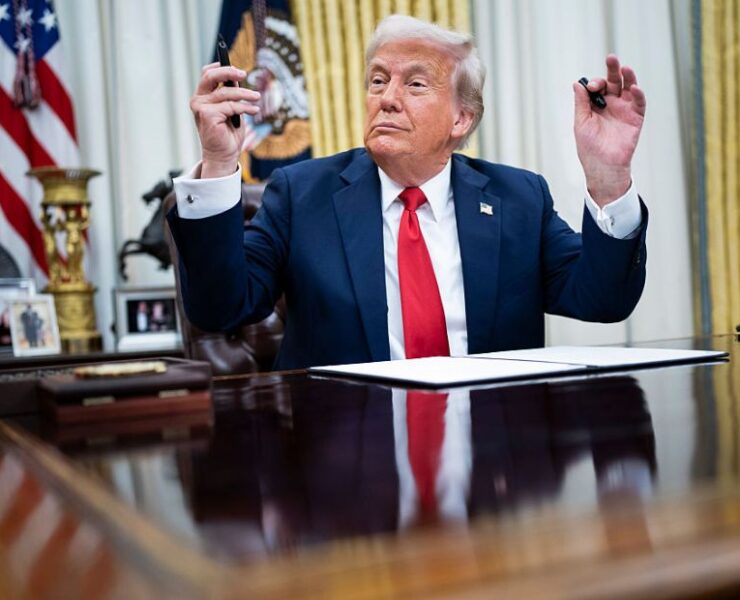Trump’s tariffs stoke global trade jitters as China, EU vow response
As Asia digested the news, Japan’s Nikkei share index slumped to an eight-month low, with US and European stock futures also diving
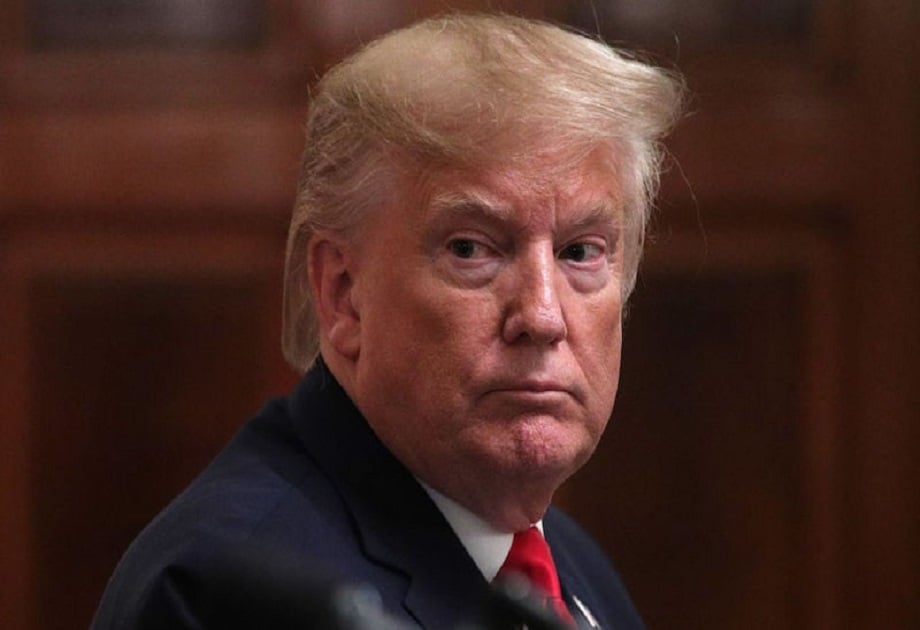
President Donald Trump’s move to slap a 10 per cent tariff on most goods imported to the US, as well as much higher levies on dozens of rivals and allies alike, has intensified a global trade war that threatens to stoke inflation and stall growth.
Full list: Trump’s tariffs on every country, including UAE, Saudi
The sweeping penalties announced against the serene backdrop of the White House Rose Garden on Wednesday immediately unleashed turbulence across world markets and drew condemnation from other leaders now facing the end of decades of trade liberalisation that have shaped the global order.
As Asia digested the news on Thursday, Japan’s Nikkei share index slumped to an eight-month low, with US and European stock futures also diving as investors scrambled to the safety of bonds and gold.
Tariffs faced by China
China, the world’s No 2 economy, faced with a fresh 34 per cent tariff on top of the 20 per cent Trump previously imposed, vowed countermeasures, seemingly taking little heed of a warning by US Treasury Chief Scott Bessent that such moves would lead to escalation.
Close allies like Japan and the European Union were not spared, facing 24 per cent and 20 per cent tariff rates respectively. The base 10 per cent tariffs go into effect on April 5 and the higher reciprocal rates on April 9.
EU chief Ursula von der Leyen described the tariffs as a major blow to the world economy and said the 27-member bloc was prepared to respond with countermeasures if talks with Washington failed.
“The consequences will be dire for millions of people around the globe,” she said in a statement.
Reciprocal tariffs
The “reciprocal” tariffs, Trump said, were a response to duties and other non-tariff barriers put on US goods. He argued that the new levies will boost manufacturing jobs at home.
Outside economists have warned that tariffs could slow the global economy, raise the risk of recession, and increase living costs for the average American family by thousands of dollars.
Canada and Mexico, the two largest US trading partners, already face 25 per cent tariffs on many goods and will not face additional levies from Wednesday’s announcement.
Even some fellow Republicans have expressed concern about Trump’s aggressive trade policy.
Within hours of Wednesday’s announcement, the Senate voted 51-48 to approve legislation that would terminate Trump’s Canadian tariffs, with a handful of Republicans breaking with the president. Passage in the Republican-controlled US House of Representatives, however, was seen as unlikely.
Trump’s top economist, Stephen Miran, told Fox Business on Wednesday the tariffs would work out well for the US in the long run, even if they cause some initial disruption.
“Are there going to be short-term bumps as a result? Absolutely,” Miran, the chairman of Trump’s Council of Economic Advisors, told the network’s “Kudlow” programme.
Ending ‘De Minimis’
The reciprocal tariffs do not apply to certain goods, including copper, pharmaceuticals, semiconductors, lumber, gold, energy and “certain minerals that are not available in the US,” according to a White House fact sheet.
Following his remarks, Trump also signed an order to close a trade loophole used to ship low-value packages – those valued at $800 or less – duty-free from China, known as “de minimis”.
Trump is also planning other tariffs targeting semiconductors, pharmaceuticals, and potentially critical minerals, the official said.
Earlier in the day, the administration said a separate set of tariffs on auto imports that Trump announced last week will take effect starting on Thursday.
Trump previously imposed 25 per cent duties on steel and aluminum and extended them to nearly $150bn worth of downstream products.
Tariff concerns have already slowed manufacturing activity across the globe, while also spurring sales of autos and other imported products as consumers rush to make purchases before prices rise.
US Representative Gregory Meeks, the top Democrat on the House Foreign Affairs Committee, said he would introduce legislation to end the tariffs. Such a bill has little chance of passing the Republican-controlled Congress, however.
“Trump just hit Americans with the largest regressive tax hike in modern history – massive tariffs on all imports. His reckless policies are not only crashing markets, they will disproportionately hurt working families,” Meeks said.

